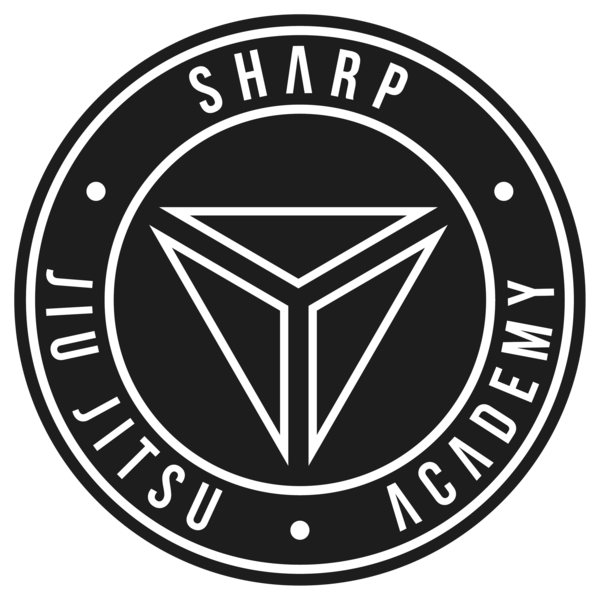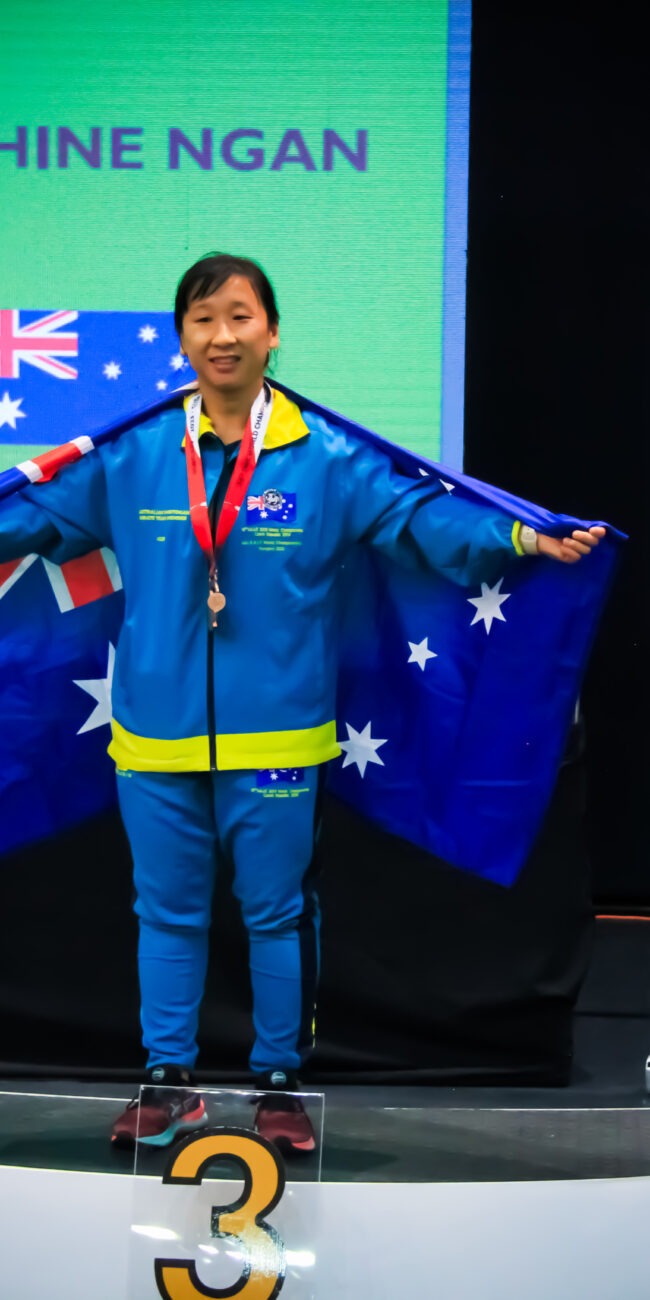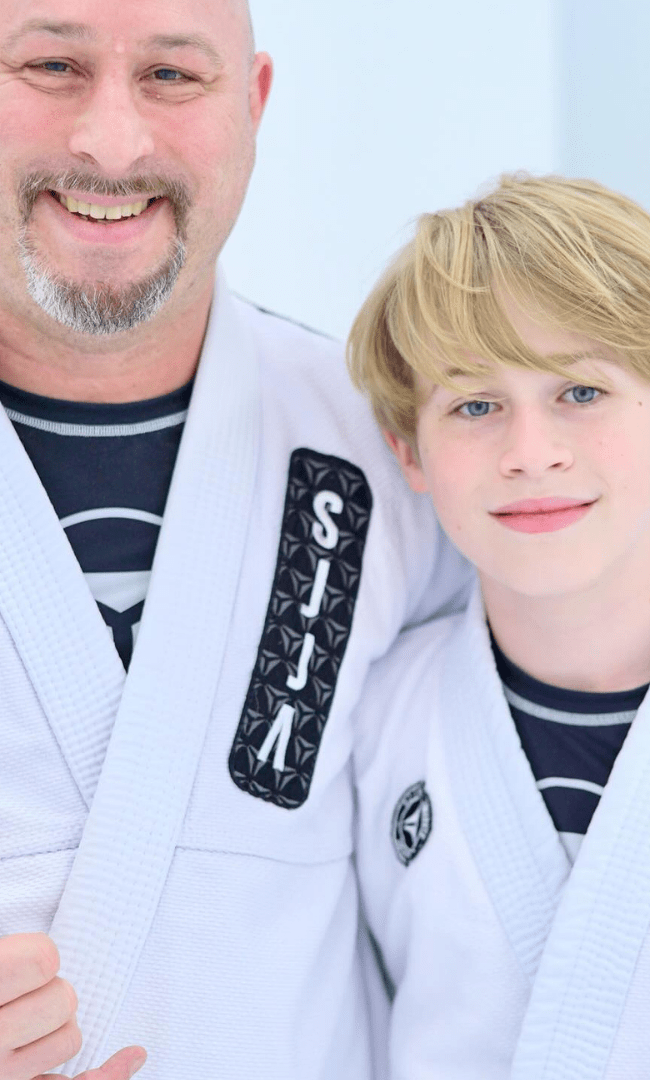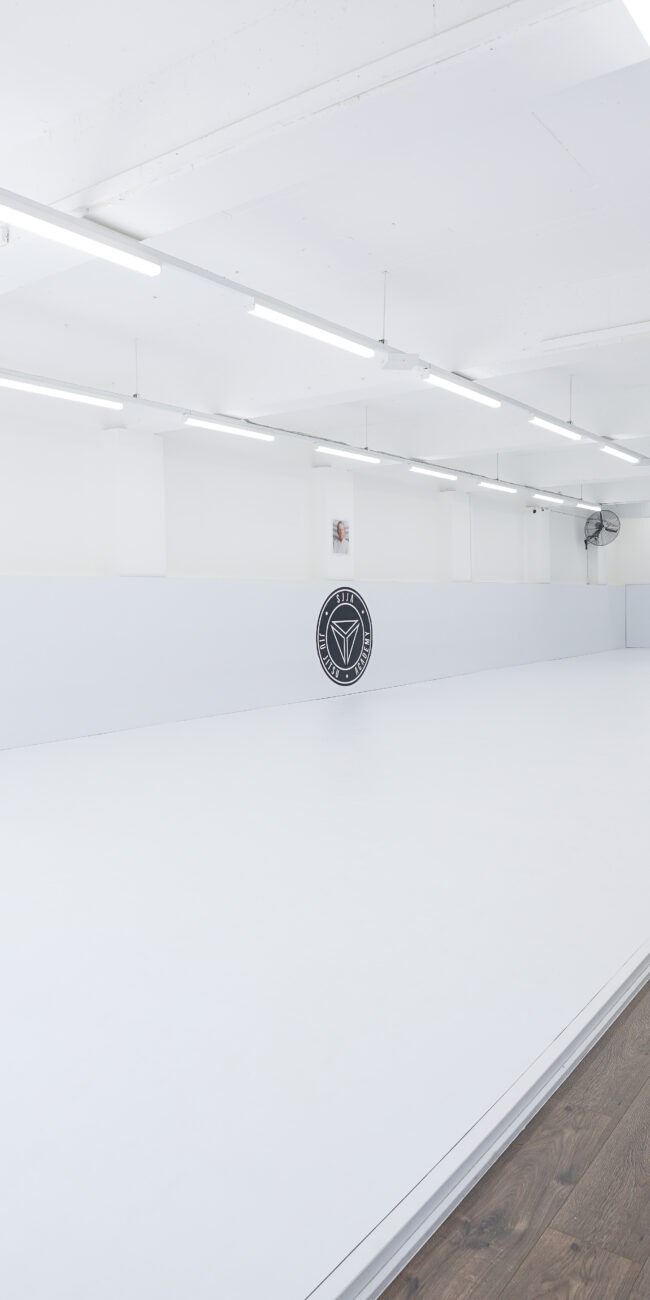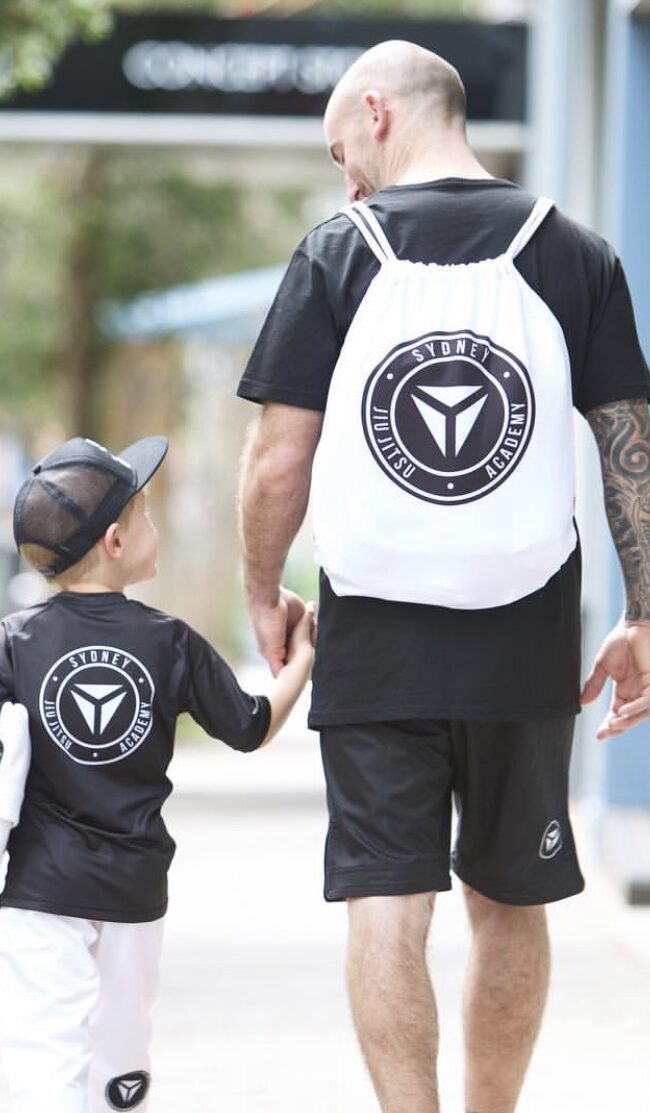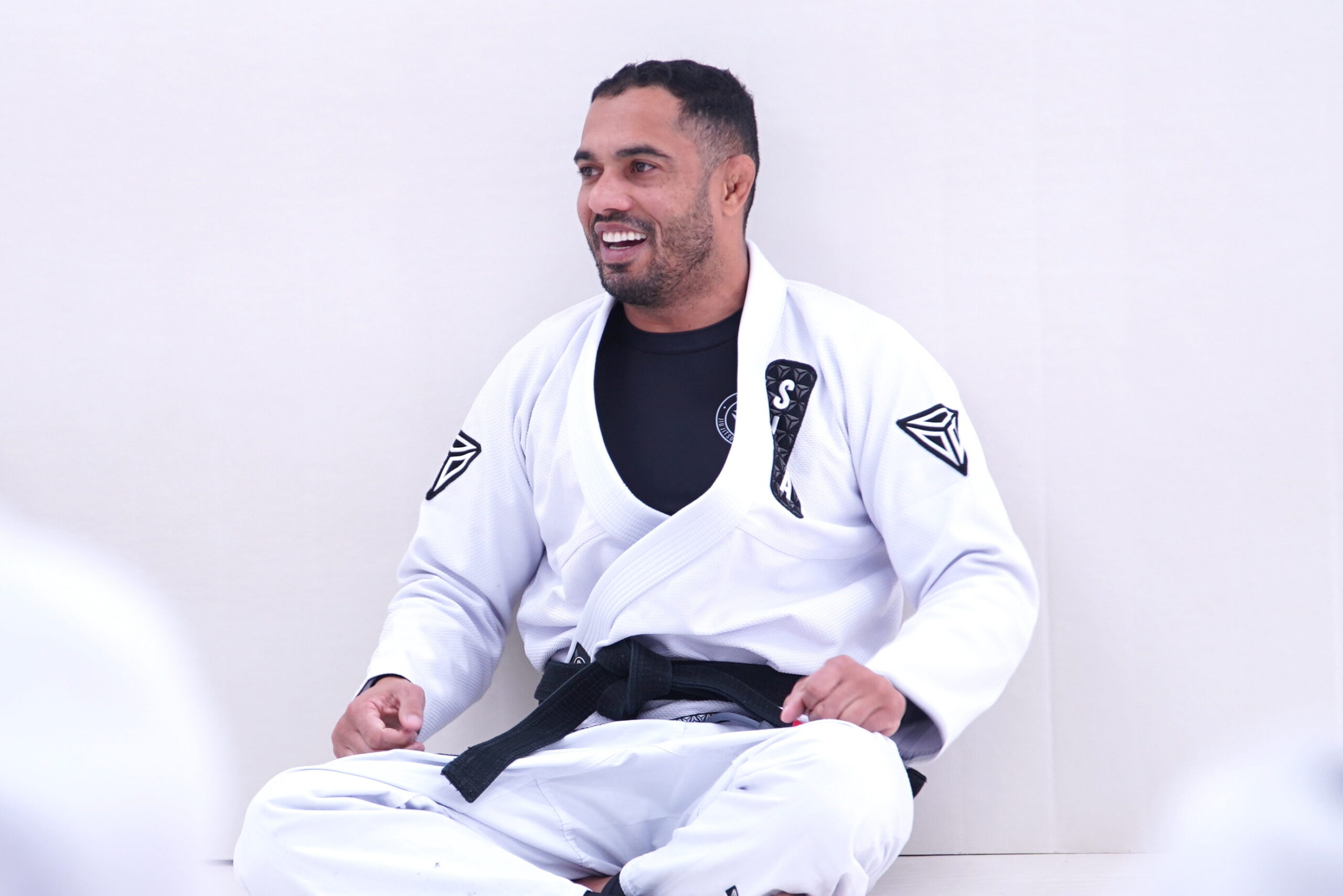
AN INTERVIEW WITH SJJA FOUNDER AND WORLD CHAMPION BRUNO ALVES
“It was really hard trying to grow my school, work at PCYC to pay my bills, and compete in World Championships all at the same time, but this whole process showed me just how much I’m capable of, and how much we as humans can actually take on when we really push ourselves.”
We sat down with SJJA’s Founder – World Champion Jiu Jitsu athlete Bruno Alves, to hear all about his life, his journey from taking 5 years off jiu jitsu as a purple belt to becoming a World Champion black belt, and his journey of growing the SJJA Association. He also talked to us about how much he pushed himself as a professional athlete and entrepreneur, the sacrifices he made, his learnings from that process, and the outcomes and rewards from that sacrifice.
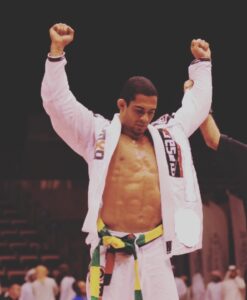
Tell us a bit about you: where were you born, and how did you grow up?
I was born in the state of Pernambuco, Brazil. I played a lot of soccer growing up, and since I lived right on the beach I also started surfing from a very young age, which became my first passion.
As a kid, what did you want to be when you grew up?
Like many people in Brazil, I dreamt of becoming a professional soccer player.
What was your first job?
This may sound bad, but technically I’ve never had a job (i.e. one where I’ve worked for someone else). When I was younger, I started selling acai in the jiu jitsu gym in my hometown. Then I opened a little acai store. After that, I tried to sell my own fightwear. So I guess I’ve always gravitated towards working for myself and being an entrepreneur. Those businesses didn’t end up working that well, but they were such great experiences because they taught me so much; the best way to do things, and also what not to do – all of which has helped me to build the SJJA Association and apparel business I run today.
What got you interested in learning martial arts?
My parents actually put me into judo when I was 4, for two main reasons: 1) they wanted to find something that would teach me discipline; and 2) they wanted me to learn self defence, because they knew there was a lot of bullying going on inside the schools in Brazil. So martial arts became part of my life from a very young age. I continued until I was 12 years old, at which point I decided to try out capoeira for a year or so. Then, at the age of 13 I discovered BJJ and became completely hooked.
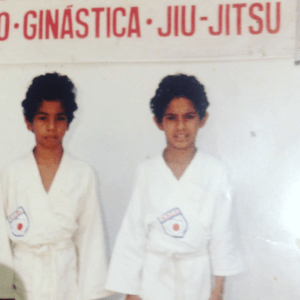
What made you want to switch to Brazilian jiu jitsu?
In the 90s, Brazilians started hearing more about BJJ through the rising prominence of the Gracie family (the family who started UFC). When people started watching UFC fights of a skinny jiu jitsu guy beating larger guys from other martial arts backgrounds, they realised this was a highly effective martial art. Back in the day, my friends and I used to rent VHS tapes of UFC fights from Blockbuster so we could watch these fights. We were glued to our television screen watching these, and I found it so fascinating how someone could defeat another person that was almost double their size. So when one of my friends invited me to his BJJ gym, I dove straight in. We were 13 at the time and there weren’t many kids at his gym, so we would always end up training with the adults, but to us, it didn’t matter that we were the youngest ones there; we were so eager to train in a way that simulated a real life fight, so training with the adults made sense.
What was it about BJJ that made you completely hooked, as opposed to other martial arts?
Maybe it sounds strange, but I remember feeling like the sport just kind of ‘fitted’ with me when I first started – everything about it just felt right. My coaches first recognised I had talent when they saw me giving the other higher belts a hard time during sparring. I had a strong work ethic as well, which I definitely got from my parents. So I think that little bit of talent combined with a lot of hard work helped me progress really quickly. When I saw my friends living overseas and making a living from jiu jitsu, it really opened my eyes and helped me see the vast array of opportunities that jiu jitsu could offer me.
In terms of practicality, I think jiu jitsu is the most effective for self-defence because it offers you that full end-to-end execution – similar to that of a real life fight; when you’re sparring you start from standing, then you take them down, and grapple with them on the ground until you get the submission. Also, if you train jiu jitsu well, over time you start to understand the things you should or shouldn’t do when it comes to a real fight. For example, in a real fight, you should always try to take someone down rather than pull guard, but at the same time, jiu jitsu teaches you how to protect yourself and win or escape if you do end up on the ground. This is one of the special things about this martial art.
At what point did you decide you wanted to be a professional BJJ athlete?
I had pretty much dreamt of going pro ever since I first started BJJ. I always knew I’d be a competitor, but my primary objective at the time was never to be World #1 or become famous; it was to make a living from jiu jitsu and give back to my family. My parents supported my brother and I so much, so it was really important for me that I give back to them in any way I could.
Were there any times throughout your jiu jitsu journey that you stopped training?
I actually had a 5 year break from jiu jitsu (from the age of 16 to 21). When I was 16 I couldn’t afford to fly to Rio or to the US to do any of the big competitions, which was a bit deflating, as it seemed like in the absence of money, I wasn’t going to be able to accomplish my dreams. At around the same time, my parents got divorced, which was a little bit hard for me to process. In terms of BJJ, I would on occasion come down to the school to train for 3 weeks, and then I’d disappear for a few months. So it’s safe to say I was feeling a little demotivated during this period. During those years away from BJJ, I did a lot of other things: I opened an acai bar and I started studying sports science at university, but none of these things really fulfilled me.
When I was 21, I started seeing all of my BJJ friends (who started their BJJ journey after I did) becoming world champions, opening their own schools all over the world, and making a living from jiu jitsu. Seeing this all of a sudden reignited the passion I had inside me, and fuelled me with so much motivation to get back into training. However, having taken 5 years off jiu jitsu, I had a lot of catching up to do. So I started training jiu jitsu 3 times a day, in addition to running on the street for an hour. In hindsight, that was not a smart idea because I was definitely overtraining, but at the time, I was just so desperate to do anything and everything I possibly could to get back into shape and make up for the time I had lost. So multiple sessions of jiu jitsu every day was extremely helpful in terms of getting all of my jiu jitsu back.
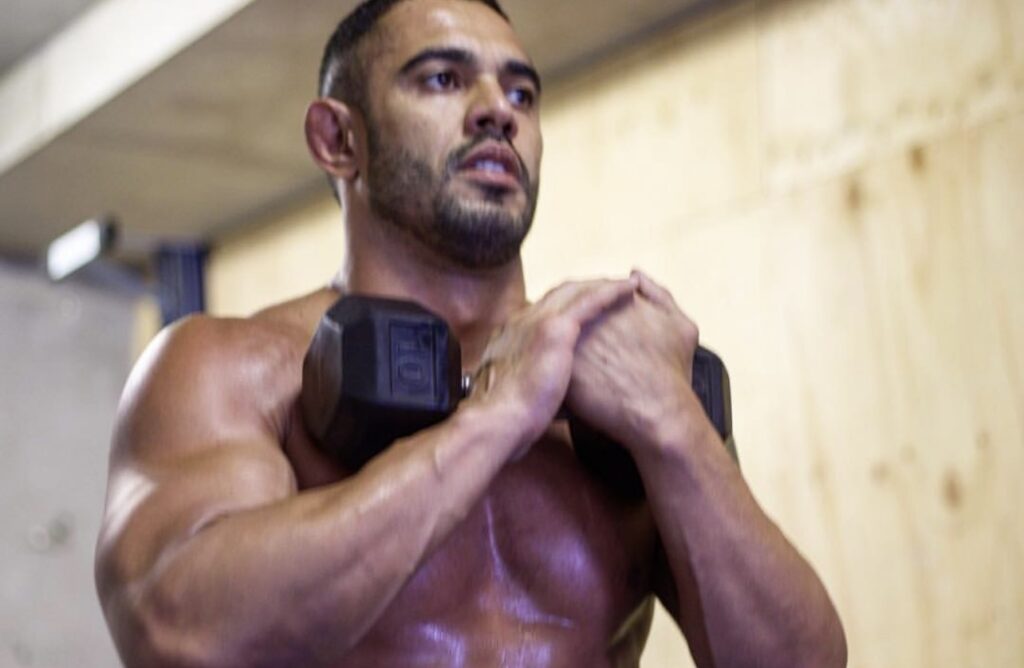
Talk to us about your first high level competition following your 5 year break from jiu jitsu.
By the time I had gotten my body back into great shape and revived my jiu jitsu game, I knew I was ready for international competitions again, so I went to fight at The Europeans in Lisbon as a purple belt. The open weight fights were up first, and I was about 76kg at the time, fighting against a heap of guys that were ~120kg. After about 6 or 7 fights, I won the open weight division, and I remember trying to call my parents that day to tell them the good news, but I couldn’t even press the buttons on my phone because my hands were so destroyed from the fights. We still had to do the team’s international challenge fights the next day, but I somehow managed to pull through and win those fights as well.
When did you take your first World Championship title?
The first time I ever won a World Champion title was in 2008 as a brown belt. As soon as I became a black belt, I won the South America Championship, and came 2nd at Europeans in 2011 and 3rd at Brasileiros.
2011 as a black belt in the adults division was definitely my best year as a competitor, as I made the finals in most of the competitions. At the same time, I had received financial support from the government where they help athletes in my city, and I also had a few sponsors who would pay for my supplements and for my gym membership. Whilst this was helpful, it was unfortunately not enough money to make a living and help my parents, which was my main goal.
A few years later, I won three World Masters Championship titles as a black belt at the Abu Dhabi World Masters Pro (in 2014, 2016, 2017), and three World Championships at the IBJJF World Masters as a black belt (in 2014, 2015 and 2016) – so 6 World Masters Champion titles in total as a black belt.
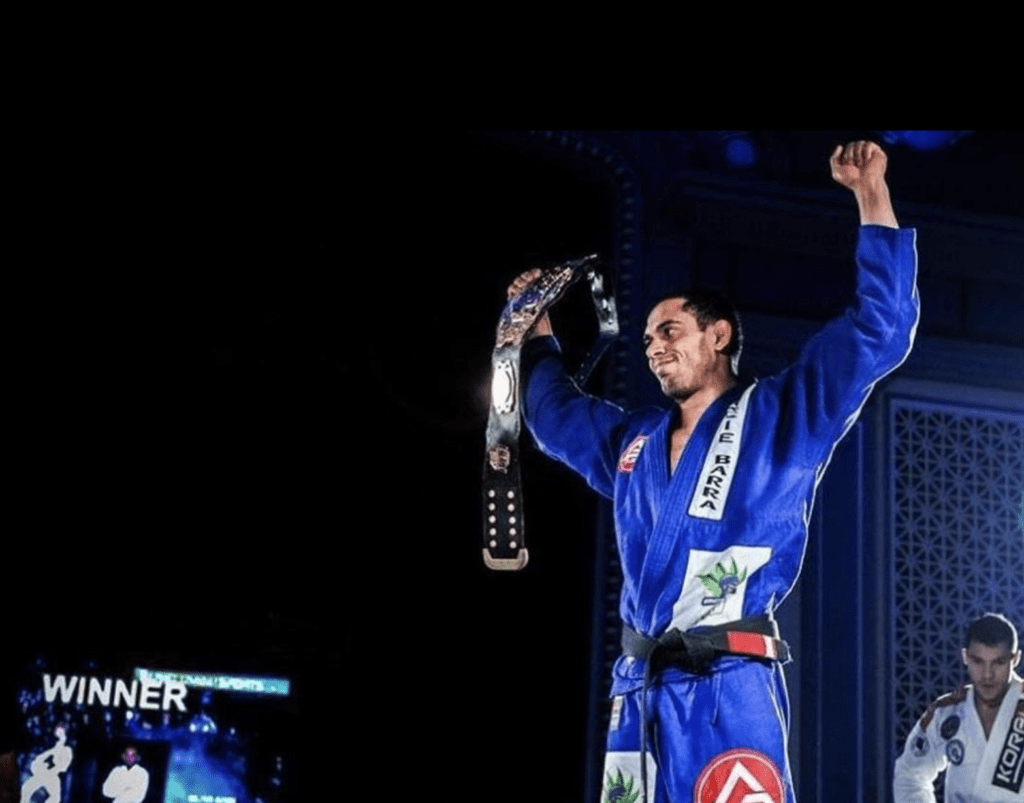
Becoming a World Champion is such a huge accomplishment – how do you attribute this success?
I think it’s a combination of working extremely hard and also having a great coach and people around you who believe in you. Our coach believed we could win medals, and would always tell us that. So having a great coach, individual determination, plus a strong team – where everyone had the same mentality of being willing to put in the work and push each other every single day – was probably the ultimate recipe for success.
When did you leave Brazil for Australia, and why?
My great friend Miter invited me to come to Australia and visit when I met him in a camp for Worlds in California. I pondered it, but not significantly enough to act on it. A few years later, I had a competition in Rio and he was also in Rio visiting his family, so he came down to watch me fight in the Brasileiro tournament. I lost in the semi-final and I was so angry afterwards, to the point where he didn’t really want to come talk to me because he could tell I was in such an angry mood, but he came over anyway. We only spoke for 5 minutes, but that 5 minutes completely changed my life. He gave me so much advice, including: telling me the hard truth that I still had no money, that these endless competitions aren’t helping me achieve my goal (which was to provide for my family and make a real living from jiu jitsu), and that there are better opportunities outside of Brazil, especially in Australia. That conversation gave me all the motivation I needed to come over.
My coach was a little upset when I told him I was leaving Brazil, because he knew I was in my prime, so to go to a country that wasn’t the US (where all the competitions and sports media were) seemed illogical to him. But there was something inside me telling me this was the right decision, and the right time to go.
I still remember the day my plane landed in Australia; the moment I took my very first step off the plane, I remember telling myself “I will succeed here. I will make this work.”
Talk to us about your first few months arriving in Australia – what was it like? What did you do?
When I landed in Australia, I only had about $600 in my bank account, so I needed to find work ASAP. However, there were hardly any jiu jitsu schools around Sydney for me to work in, so my friend introduced me to a guy in Newcastle who owned a gym and needed someone to teach. I worked there for 3-4 months, started competing in local tournaments, and started doing private lessons everywhere I could – in the city, in Manly, in Cronulla – wherever I could find work. I didn’t have a car either, so I had to catch the bus and train everywhere.
I was living in Dee Why at the time, and had privates at Cronulla and also taught jiu jitsu classes a few times a week in PCYC Woolloomooloo. That meant I had to wake up at 5am every day to either teach at Cronulla or train my clients in Cronulla, which was a 3.5 hour journey each way. I did that for about 1-2 years.
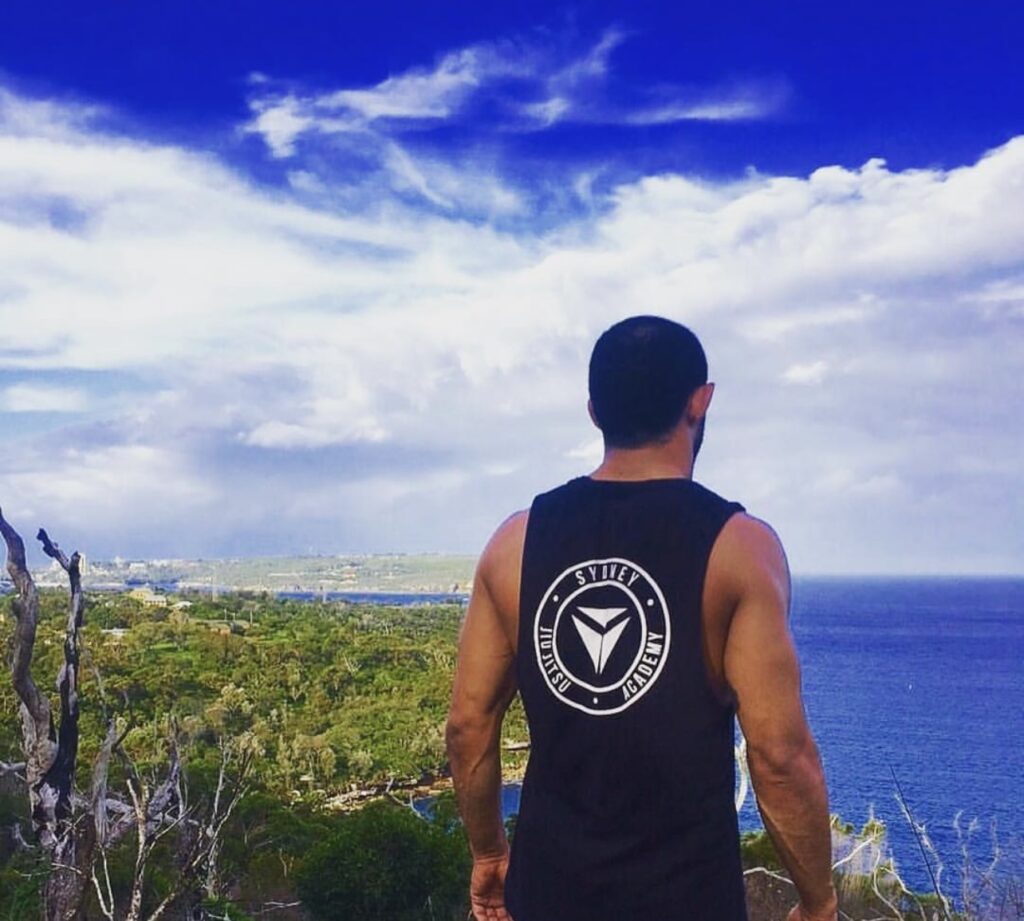
That’s A LOT. Tell us more about this process – weren’t you exhausted every single day? Were you happy or miserable during this time?
Oh, I was physically destroyed every single day. With all the classes and privates I had to teach, I would commute each day with 3 or 4 gis in my bag, which meant lugging around the city and on public transport every day with a huge, heavy bag whilst pushing myself physically to train people all day long. I was so happy though, because I could see the progression; I was saving money, getting more students, learning English and working towards my dream. There was zero misery.
After 6 months in Australia, I had planned to fly to Abu Dhabi for the World Masters Pro, but a few months before my fight, I tore my meniscus. The surgery was going to be $6,000, but I didn’t have the money to pay for it, so one of my sponsors volunteered to pay for my surgery. But I also couldn’t teach my privates because I was injured, which meant I was quickly running out of money again. My family sent me some money for me to survive for an additional week, and I stayed with a friend rent-free until I fully recovered.
However, I was still so desperate to fight in the Abu Dhabi World Pro because I needed to make the podium in order to get the prize money to be able to keep living in Sydney. So about 5 weeks after my surgery, I flew to Abu Dhabi to fight. I got to the semi-final and lost my fight, but thankfully I still received US$2,000 in prize money which was enough for me to survive another few months in Sydney. I started securing more and more private lessons, and fought in a few more tournaments that paid me $1,000-$2,000 in prize money, so I started saving as much money as I could and used that money to pay for my visa. That’s when things really started moving.
Setting up a business while you’re trying to earn a living AND compete is really hard. Talk to us about this process.
It was in 2012 that I had saved up enough money to open my own gym in Crows Nest, but the gym was growing very slowly, meaning it would only just cover my rent, so I still had to keep doing my private lessons and PCYC classes in Woolloomooloo so that I could pay my bills.
I won’t lie – it was a very tough period, because I was trying to grow my school, but at the same time still needed to work at PCYC to pay my bills, compete in tournaments, and also dedicate enough time to training to ensure I was physically prepared for them. It was hard doing this all at the same time, but this whole process showed me just how much I’m capable of, and how much we as humans can actually take on when we push ourselves. I still remember those days: I had the same 24 hours as other people, but I got so many things done in just 12 hours. So I’ll be completely honest, I have little sympathy when people tell me: “I don’t have time to train” or “I have this dream, but not enough time to execute it”, because when I look back at how many things I got done in a single day, I learned that it’s actually entirely possible, you just need to be efficient with your time. The more you do, the more you learn to become more productive, and in turn, you actually become more energised, because of how active you are and how many things you’re accomplishing.
Today, I can safely say that I’m living my dream. I now have a really good work life balance; I have enough time to train, to run my business, to teach what I love (jiu jitsu), I have time for my partner, and I also make time to relax. That being said, I wouldn’t be able to live my dream today if I didn’t make the sacrifices I did when I first got to Australia. Let me be clear – if you have big dreams, sacrifice is an essential requirement. There’s no way I would be in the position I am today if I hadn’t committed all those extra hours to working, training, and setting up a new business.
Talk to us about the growth of SJJA.
When I opened the very first SJJA in Crows Nest, my goal was just to make that academy one of the biggest in Australia, and create a gym with really high standards for both kids and adults. However, not long after we announced the opening of the Crows Nest gym, I had two other guys approach me, who said they really liked the brand and what we were doing, and they wanted to be part of that. So each of them opened their own gyms under the SJJA brand – one in Maroubra and the other in Brookvale. So before we knew it, we already had 3 SJJA’s!
It was in SJJA’s very first year that our 3 schools came in first place overall at the NSW State Championship (for both kids and adults), which was such an incredible achievement. That was when things started to really ramp up, because people started to hear about us more and more at all the competitions, and saw we were doing something really special for both kids and adults, so they too became interested in training at SJJA.
In the second year we grew to six academies, and today (2022), we have 19 schools across NSW, Queensland and Victoria. I had no idea at the time how big the SJJA brand would become, and would never have dreamed that we would grow to this size – it’s been amazing to see how much it has grown.
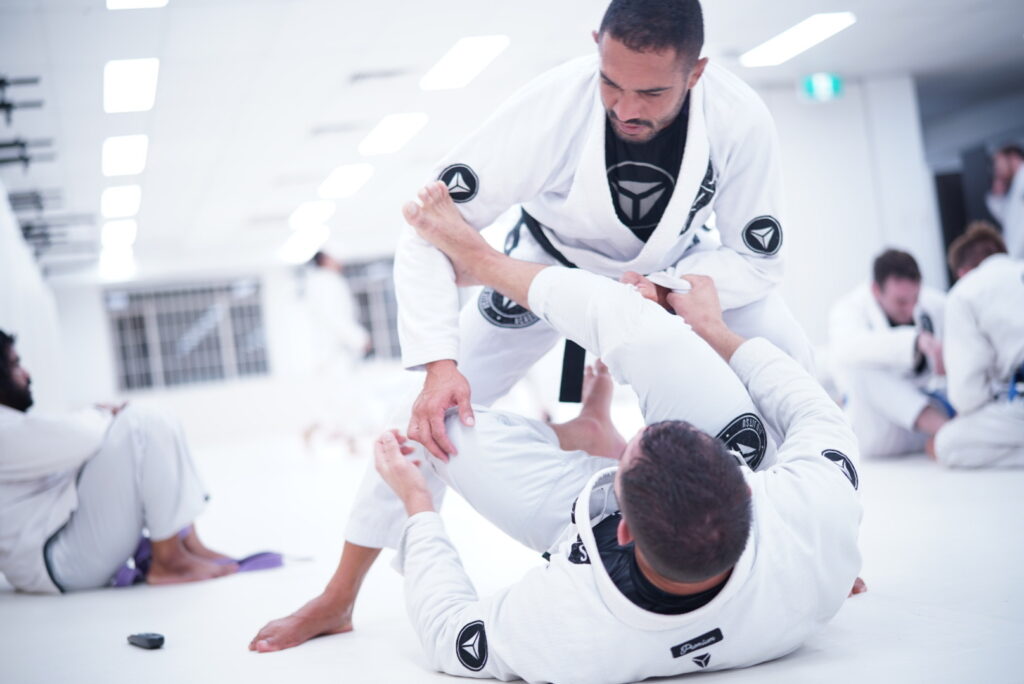
How has jiu jitsu changed your life?
Jiu jitsu has given me everything. Firstly, it gave me the opportunity to travel around the world. Competing at the highest level was a big part of my life, and I’m so happy I was able to earn the title of World Champion. Secondly, I’ve made friends all over the world who are a huge part of my life and they constantly help and support me. Thirdly, it’s given me the possibility to help my family and buy a better home for my parents in Brazil. Fourthly, it’s given me a unique competitor’s mindset, in that the mindset I used as a competitor is the same mindset I apply to business and management, including: how to train my coaches and constantly improve to give the best possible classes for our students, and create the best facilities. I also never ever settle and always want to see things improving. I see a lot of people open their BJJ school but aren’t constantly thinking about ways to improve the class and improve the experience of the students quite like we do at SJJA.
Was it hard when you retired as a professional athlete?
Yes, that part was really hard because of the way in which it came about it. I had been fighting with a completely torn ACL, a problem with my back, and some previously dislocated shoulders. I tore my ACL a few weeks before the competition in Abu Dhabi, and after 4 or 5 fights I came third. However, when I got back to Australia, my knee was literally like jelly. I could barely even walk; I remember falling down all the time when I was trying to walk around, and in that moment, I knew that was my body telling me I really needed to stop.
It’s really hard to retire from any sport. Competitions give you so much adrenalin and so much reward, and when you’re used to that high energy and thrill for most of your life, it becomes like a drug – so letting go is the hardest part. However, I’m really glad I dedicated the extra time to build up my own business in the background. It was hard at the time to do everything, but I’m so glad I did it. I was definitely a bit more selfish during that period though; sometimes I didn’t give my students as much attention as I could have because I was very focused on getting ready for my competitions, but now that I’m retired, I’m able to help my students so much more, take care of my body more, and grow in the business world.
If you had one piece of advice for people who are thinking about trying out jiu jitsu, what would you say?
Jiu jitsu from the outside seems strange, but I can guarantee that 100% of people who try jiu jitsu can feel the sport and see how powerful and effective it is. You have to really try at least one class to feel and see the benefits. When you get someone who starts training jiu jitsu for the first time, for us, that person becomes like a baby to hold and guide throughout their journey. They’ll see for themselves that being the heaviest does not mean you’re the best. They’ll learn that just because you’re a male, does not mean you’re going to be better than the females. Proper technique and regular training is what makes you better than others.
What’s also been great is seeing all the benefits jiu jitsu is bringing to my students, for example: how much it lowers their stress levels, helps them stay in shape, and stay healthy.
I get asked a lot about injuries; often people assume you are guaranteed an injury if you train jiu jitsu, which is definitely not the case. All of my injuries were from pushing my body to the absolute limit. Whenever I would put my name down for a competition, I would do whatever it took, no matter what condition my body was in. For 12 weeks, I would train A LOT; I’d train jiu jitsu twice a day, plus train CrossFit three times per week, and run stairs every single Sunday. I would train with all of the heavy guys, and would do a lot of open weight divisions – both of these things are not necessarily smart moves, and definitely expose you to a higher risk of injury.
You’re never going to have the amount of injuries that I had if you’re not competing at the highest level. You’ll notice that any high level athlete around the globe (in any sport) has had many many injuries, because they’re all pushing their body beyond its limits. For someone who just trains 4 times a week, and more importantly, trains smart – it’s really safe. As long as you join a gym with a class for beginners, and you have people you feel safe rolling with, you’ll be fine.
Any final words?
I would like to thank God first, my family and my partner. They are my rock and my base, and without them, I could not have made all of this happen, as they always support me in good and bad moments. My coach Ze Radiola, who guided me and gave me a lot of support during my career. All of my training partners who trained with me back in Brazil. I also want to thank all SJJA staff who worked with us in the past and who are working with me right now, the current SJJA school owners and all of our head coaches, assistants, and volunteers. And thank you to all SJJA students who believe in our work and have helped us a lot to build SJJA. We are looking forward to the future and hope you will all be with us and become our future black belts of SJJA, and help spread the benefits of jiu jitsu across Australia.
